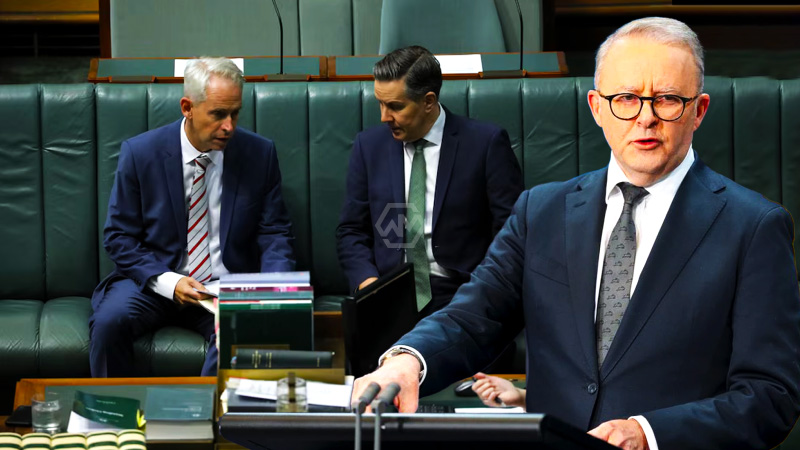- Australian PM Anthony Albanese replaces ministers for immigration and national security.
- Court ruling forced release of over 100 immigration detainees, many with serious convictions.
- Tony Burke appointed to handle Home Affairs and Immigration Ministries to address the crisis.
Australian Prime Minister Anthony Albanese has replaced Home Affairs Minister Clare O’Neil and Immigration Minister Andrew Giles following a high-profile court ruling that forced the release of more than 100 immigration detainees.
The ruling deemed indefinite detention without the possibility of deportation as unlawful, leading to the release of detainees, including individuals convicted of violent crimes.
Albanese Overhauls Immigration and Security Portfolios
In an effort to manage the political fallout, Albanese appointed veteran government official Tony Burke to oversee both ministries. The government has since imposed strict conditions on the released detainees, such as ankle monitoring and curfews, while seeking to reform policies criticized for their harshness by international and refugee advocacy groups.
Clare O’Neil and Andrew Giles, the former ministers of Home Affairs and Immigration, respectively, were reassigned to new roles as Albanese sought to restore confidence in his administration. Veteran problem solver Tony Burke has been brought in to manage both departments, highlighting the government’s commitment to addressing the complexities of the immigration system.
The High Court’s decision marked a pivotal shift in Australia’s immigration policy, overturning a 20-year-old practice that allowed for the indefinite detention of individuals without visas. The ruling was celebrated by refugee advocates but posed significant challenges for the government, particularly with the release of detainees convicted of violent offenses.
In response to the ruling, officials have implemented stringent measures to monitor the released individuals, including the use of ankle bracelets and curfews. This move aims to balance public safety concerns with the need to comply with the court’s mandate, while also addressing the broader implications of the policy change.
The recent ministerial changes and policy adjustments reflect the Albanese government‘s efforts to navigate the legal and ethical challenges within Australia’s immigration system while addressing public safety concerns and restoring confidence in their administration.
“The United Nations’ refugee agency has described Australia’s immigration detention policy as ‘arbitrary’ and ‘punitive’.”



